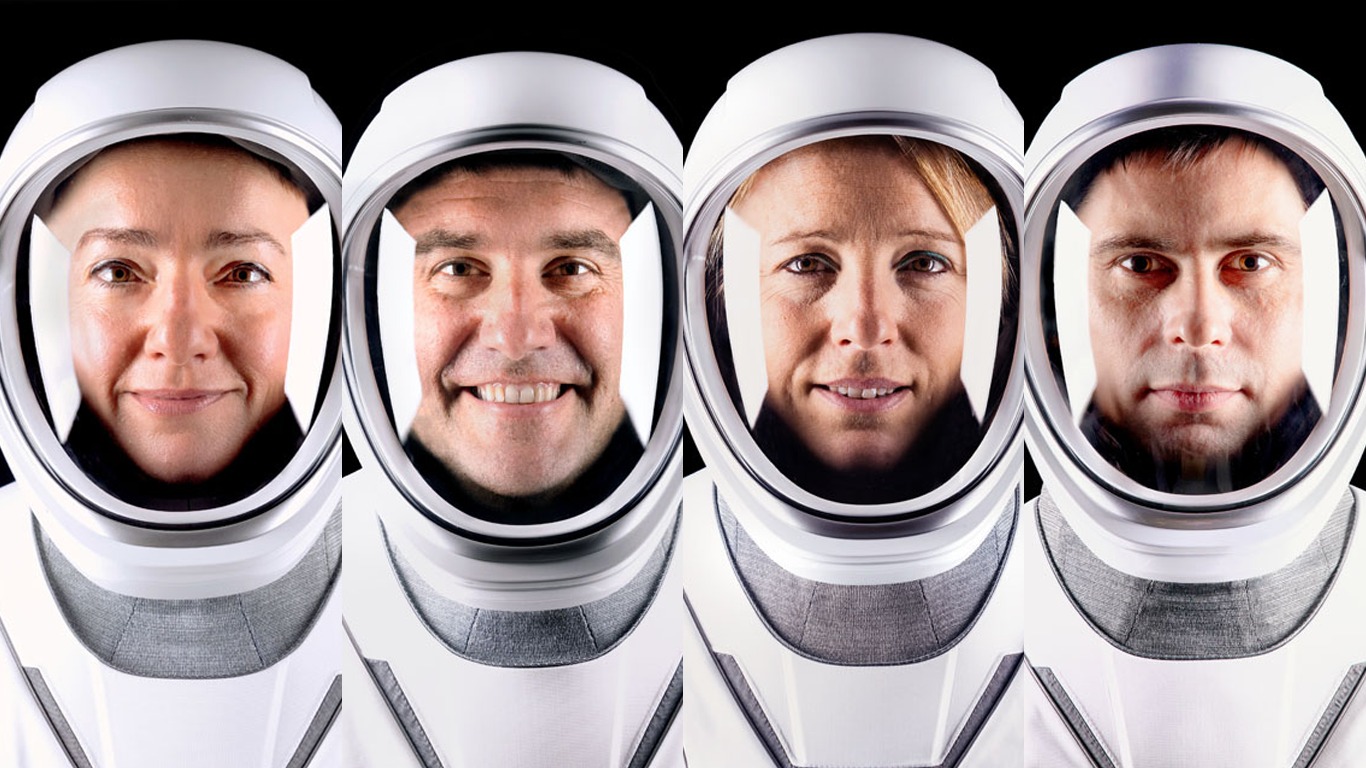Rocket Lab catches falling Electron booster with helicopter in reusability test (video)
Rocket Lab just took a dramatic step toward booster reuse.
The spaceflight company announced last year that it wants to start recovering and reflying the first stages of its two-stage Electron rocket, which gives small satellites dedicated rides to orbit.
Rocket Lab's recovery vision doesn't involve SpaceX-style vertical booster landings; the 57-foot-tall (17 meters) Electron just isn't built for that, company officials have said. So, the plan is to pluck falling Electron first stages out of the sky using a helicopter.
Related: Rocket Lab and its Electron booster (photos)
Weeks ago, we did a little test. Electron is a step closer to becoming a reusable launch vehicle. https://t.co/HYKIIIqgq7 pic.twitter.com/OEvkHGr7tqApril 8, 2020
And Rocket Lab pulled off that maneuver early last month during a test over open ocean near New Zealand, the company announced Wednesday (April 8).
One helicopter dropped an Electron test stage, which deployed a parachute. A second helicopter then swooped in and snagged the chute's drogue line at an altitude of about 5,000 feet (1,500 meters) using a special grappling hook. The chopper successfully ferried the rocket stage back to land, as it would during a real post-launch recovery, company representatives said.
"Congratulations to the recovery team here at Rocket Lab on a flawless midair recovery test," Rocket Lab founder and CEO Peter Beck said in a statement.
Breaking space news, the latest updates on rocket launches, skywatching events and more!
"Electron has already unlocked access to space for small satellites, but every step closer to reusability is a step closer to even more frequent launch opportunities for our customers," Beck added. "We're looking forward to pushing the technology even further this year and bringing a flown stage back to the factory."
That coming milestone, which Rocket Lab aims to notch late in 2020, won't involve a midair catch. The plan is to let an Electron first stage splash down softly under parachute after liftoff from Rocket Lab's New Zealand launch site and collect the booster with a ship, company representatives said.
Last month's test, which took place before New Zealand instituted strict stay-at-home measures to combat the coronavirus pandemic, wasn't Rocket Lab's first demonstration of reusability tech. On the two most recent Electron launches, which occurred in December 2019 and January of this year, the company guided first stages back to Earth in a controlled fashion, gathering lots of data along the way.
Electron has 11 launches under its belt. All of them took off from the New Zealand site, on the North Island's Mahia Peninsula. But California-based Rocket Lab has also built a launch site in the U.S., at the Mid-Atlantic Regional Spaceport on Virginia's Wallops Island. The first launch from the Virginia pad should take place this year, company representatives have said.
- What's next for Rocket Lab? A Q&A with CEO Peter Beck
- Rocket Lab launches satellite for US spysat agency, guides booster back to Earth
- Rocket Lab's 'Rosie' the robot can build a booster in just 12 hours
Mike Wall is the author of "Out There" (Grand Central Publishing, 2018; illustrated by Karl Tate), a book about the search for alien life. Follow him on Twitter @michaeldwall. Follow us on Twitter @Spacedotcom or Facebook.
OFFER: Save 45% on 'All About Space' 'How it Works' and 'All About History'!
For a limited time, you can take out a digital subscription to any of our best-selling science magazines for just $2.38 per month, or 45% off the standard price for the first three months.

Michael Wall is a Senior Space Writer with Space.com and joined the team in 2010. He primarily covers exoplanets, spaceflight and military space, but has been known to dabble in the space art beat. His book about the search for alien life, "Out There," was published on Nov. 13, 2018. Before becoming a science writer, Michael worked as a herpetologist and wildlife biologist. He has a Ph.D. in evolutionary biology from the University of Sydney, Australia, a bachelor's degree from the University of Arizona, and a graduate certificate in science writing from the University of California, Santa Cruz. To find out what his latest project is, you can follow Michael on Twitter.

